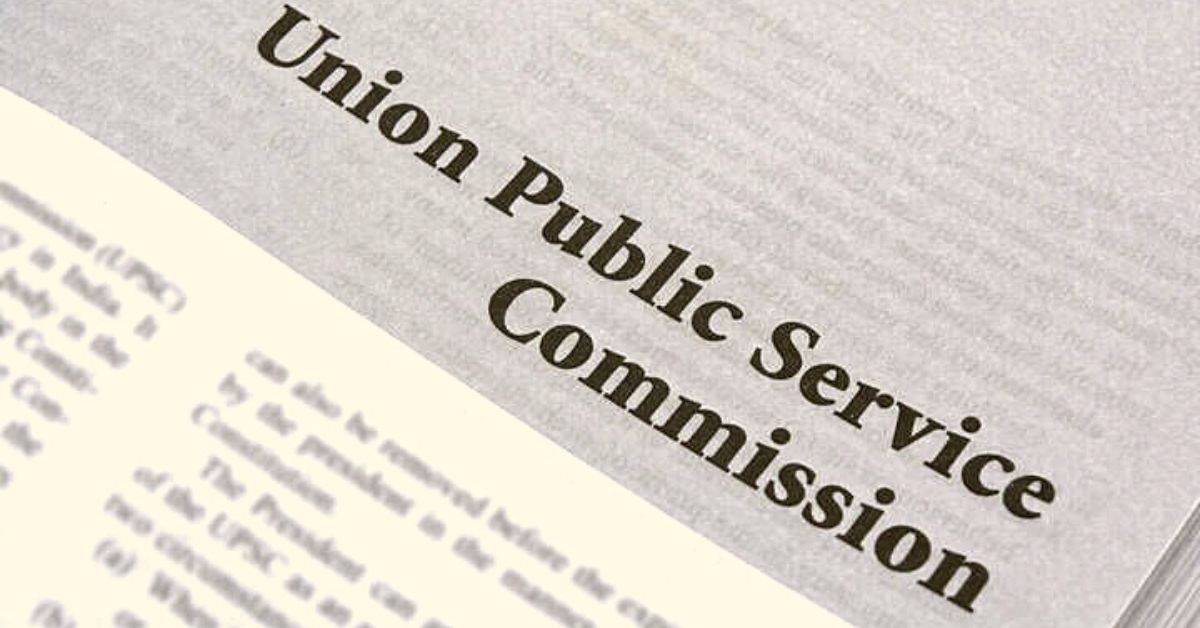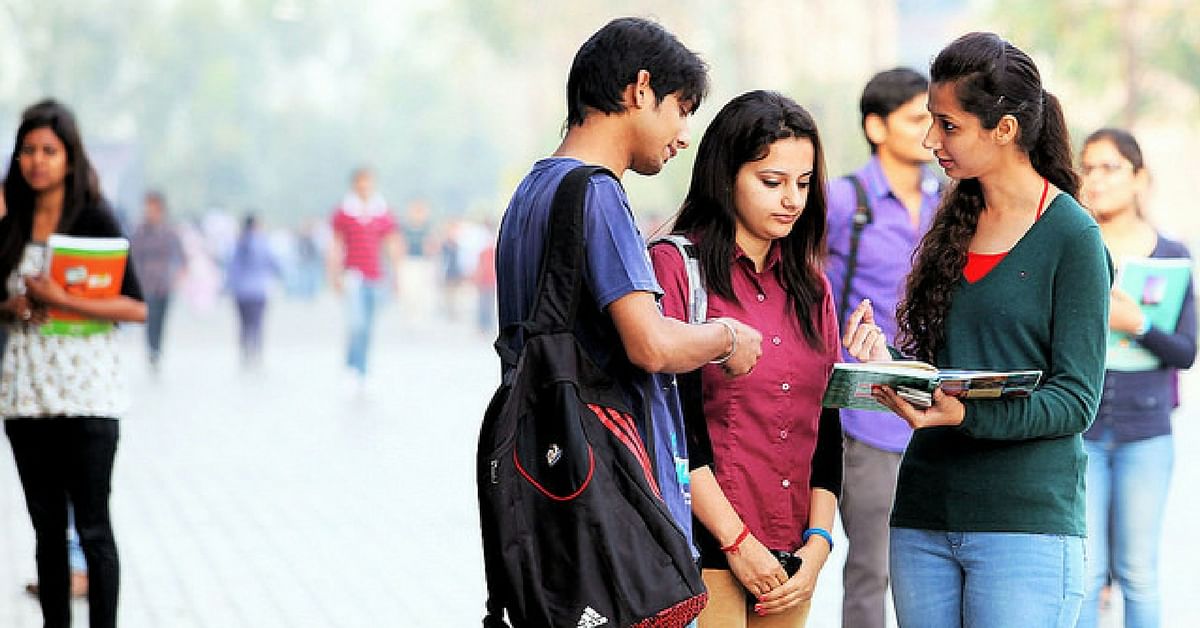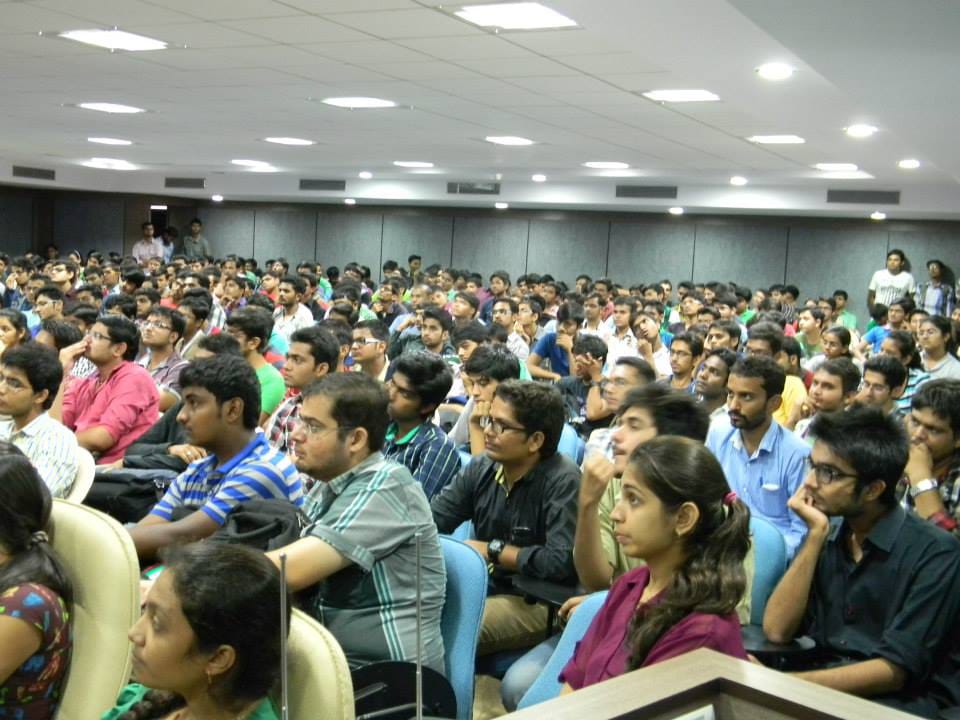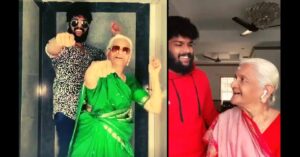If You Don’t Pass The UPSC Civil Service Exams, It Isn’t The End of Your Dreams
What happens when you spend years preparing for the UPSC exam and still don’t crack it? Four aspirants share details on how they dealt with failure.

As per one estimate, out of the lakhs who apply for the civil service examinations conducted by the Union Public Service Commission (UPSC) every year, barely 0.2 per cent are finally selected,
The examination, which is conducted in three stages (Preliminary, Main and Interview) and across the span of nine months, is brutally difficult. Getting into the civil services not only offers long-term job security and an opportunity to administer this country, but it’s also a point of great prestige for many families.
This is why lakhs spend years of their time, money and effort in preparing for the UPSC exams. Here, at The Better India, we have told innumerable stories of people passing this exam despite difficult circumstances and how it can be done.
The sheer volume of people who read these stories every week gives you an idea of how obsessed many families are about this exam and its outcome. However, what is often missed is what candidates can do if they don’t reach the promised land.
While getting into the Union civil services, particularly the Indian Administrative Service (IAS), Indian Foreign Service (IFS) or Indian Police Service (IPS), is a fantastic career option, the general public’s obsession with it is unhealthy. Like our board exams, there is a lot of undue stress and pressure that comes with the aspiration of clearing this exam.
I have seen with my own eyes what this stress and pressure can do to people. I have seen people spending nearly a decade of their lives preparing for this exam, and when it didn’t work out, they were left in a state of anxiety, bitterness, frustration and ultimately depression.
Earlier this week, The Better India spoke to many candidates who didn’t reach the promised land despite multiple attempts, but have managed to land safely with good and stable careers. It’s important for those who haven’t cleared the exam to hear their voices.
Not Getting Through UPSC Despite Multiple Attempts
Aditya Unnikrishnan, a research associate at the Centre for Policy Research, a leading Delhi-based think tank, felt that after obtaining his Master’s in Development Studies from IIT-Madras back in 2015, the natural progression was a career in the civil services.
“My first UPSC attempt was right after graduating without any preparations in 2015. Back then, I just wanted to figure out what writing the exam felt like. The following year, however, I was well prepared for it. That was my first actual attempt. I cleared the Mains, got through the Interview stage, and at the final hurdle I missed out by 15-18 marks. Despite the initial disappointment, I figured out some of the things I needed to work on. I gave my next attempt the following year, I cleared the Prelims, but fell short in the Mains even though I thought I had done much better than the year before,” says Aditya.
Rohit Kumar, a senior product manager at Byju’s, who takes history classes online and handles their UPSC preparation material, has attempted the exam five times.
“I began preparing for the UPSC in 2011 after quitting my job managing an apparel factory in Bengaluru. My first attempt was in 2012. On four occasions, I cleared the Prelims and wrote the Mains, and reached the Interview stage once during my third attempt in 2015. Since middle school, I was always a good student with an inclination towards the arts. So, at the back of my mind, I knew that I would give the civil services exam one day. After graduating from the National Institute of Fashion Technology in 2010, I worked for nearly a year and instead of sweating for somebody else, I thought why not expend that effort to my goal, which was to clear the civil service exams,” says Rohit.
Meanwhile, for Sanchari Pal, who is currently the Head of Content at The Better India, it was a desire to help bring about change she wanted to see in the country that motivated her to attempt this exam four times.
“My dad was a civil servant who served in the Andaman islands during the tsunami of 2006, and I had seen firsthand the kind of impact dedicated civil servants could have on the lives of so many people. Yes, there was corruption and lethargy in the system, but a change was slowly and steadily rolling in. And I really wanted to be a part of this change,” she says.
Dealing with the Disappointment of not Clearing UPSC
“I was majorly disappointed when it didn’t work out. When I got to the interview stage during my first serious attempt, I knew what had to be done the next time. With all these expectations built, the outcome the second time around was way below what I had expected. That hit me really hard but it also made me think that the outcome of this exam does not feel very controllable since I was convinced I had done much better than the year before. I wasn’t confident enough or 100 per cent sure that in my next attempt I would make it. There was a real risk that I would spend my entire twenties writing this exam. I was pretty sure that I didn’t want to take that risk,” recalls Aditya.
Prior to attempting the civil services, Rohit had cleared all manner of public service examinations like the Staff Selection Committee-Combined Graduate Level Examination (SSC-CGL), State Bank of India Probationary Officer (SBI-PO) Examination and others.
“Once I cleared these exams, I knew my focus was going to be on UPSC civil service exams. In April 2011, I moved to Delhi and lived there two and a half years until the end of 2013. That’s when I had just given my second attempt. By this time, there was nothing new to study and all I had to do was focus on my weaknesses. So, I took a call, came to Bengaluru and started teaching while also giving my exams. By my fifth attempt, however, I had enough. Even though there was another attempt left, I had already given six years of my life to this exam. I didn’t want to go any further. Maybe, I thought this is not meant to be. So, I took a call. By 2016 I had already taught for three years and thought maybe I am good at this profession as well. That’s when I took a real plunge into teaching,” says Rohit.
After falling short three times at the Prelims stage of the UPSC, in her fourth attempt Sanchari cracked the prelims, but disappointment wasn’t very far away.
“The mental exhaustion was extreme and as a result I fell severely ill. This meant that I couldn’t give the Mains. After dedicating four years of my life and working harder than I had ever done before, I couldn’t give the exam and this left me incredibly depressed for months. I had started preparing for UPSC right after college and I felt as if I had wasted my time while all my friends and classmates had gotten ahead with their careers. There was also the sinking realisation that perhaps I would never get a chance to serve my country the way I had wanted to,” she recalls.
Fortunately for Aditya, he found a job with Delhi-based Swaniti Initiative, a social enterprise, which works with policymakers and elected representatives to deliver development solutions. He ended up working with Swaniti Initiative for about a year and a half before moving to the Centre for Policy Research earlier this year.
“Of course, it helped that I had options and it wasn’t too hard for me to get a job. After two or three years of not being on the job market, many people feel like there aren’t any real options for them. Since many feel this way, they continue attempting it. It’s not necessarily the case that you don’t have options, but it’s not easy either. If you decide not to write again and start looking for jobs, it may not be an easy journey, but eventually you’ll manage. I had the qualifications to transition into the non-profit policy sector. But there are a bunch of people who don’t have those qualifications,” says Aditya.
Speaking to The Better India anonymously, a 28-year-old B.Tech graduate from Andhra Pradesh who has spent years on the Delhi coaching centre circuit, elaborates further.
“I finished my BTech in mechanical engineering from a not-so-well established institution in Andhra Pradesh, and frankly there aren’t many job opportunities out there for me,” she says.
This year she failed to make the cut after falling short at the interview stage and it was her fourth attempt at the UPSC. She does admit feeling insecure at not being in the job market for the past four years, but that hasn’t allowed her to sit back passively. For the past two years, she has been picking up skills like cloud computing, coding and animation (a passion), through taking classes online and from friends. She knows the task of finding a job after a gap of four years will be difficult, but remains positive.
“For many candidates like me, particularly from economically or socially deprived backgrounds, clearing this exam is what allows us to climb that social ladder. It’s sometimes the best shot we have at achieving this target. We don’t have the privilege of having relatives or friends in different sectors who can help us find a stable and well-paying job if this does not work out. This is why there is the added pressure on us to keep trying. But there comes a time, when we realise that this can’t go on. After all, you don’t want to get left behind, but that choice always depends on the individual,” she says.
Meanwhile, after 4 months of wallowing in self-pity, Sanchari finally began finding solace in something she had loved since her school days — writing.
“And, since I really wanted to work after all those years of sitting at home, I decided to get a job that would let me write, even though I had a degree in Biotech Engineering. That’s how I came across The Better India. I applied, had a great interview with the founders and was hired as a staff writer,” she recalls.
“Every dark cloud has a silver lining. We need to identify that silver lining. For everyone, it is something different. For some, during their preparations, they take a back up plan like completing their post-graduation or picking up new skills and finding a vocation that makes you feel good about yourself. By your third or fourth attempt, you have a clear idea of what’s not working for you. When you falter at the Mains more than a couple of times, there comes a stage when you realise that this entire exercise may not be for you,” says Rohit.
Finding Joy in Their Current Occupation
“At the Swaniti Initiative, we worked closely with a lot of Members of Parliament. I was part of a team which provided MPs with a lot of research material that would help them prepare for debates, committee meetings, and so on. I soon transitioned towards a project management role helping civil society organisation in Uttar Pradesh and Bihar battle human trafficking. We were providing policy support to nonprofits working in the field, and how they can work better with arms of local government to tackle the issue more effectively. At the Centre for Policy Research, I joined the State Capacity Initiative, which focuses on understanding how state systems work, particularly the bureaucracy. With what I had learned in college and working with government stakeholders in Swaniti, I was able to get into that team,” says Aditya.
For Aditya, a career in policy research has given him the freedom to decide what he wants to work on. “I have control over my life. Last year, I was managing a project on human trafficking, and learnt a lot there. But it was a project essentially driven by clients and donors, and I wanted to shift to a place where my interests truly lay,” he adds.
More essentially, it’s the freedom to decide what he wants to work on from time to time. As per his understanding, while the civil services offer greater opportunities to facilitate change, they may not provide the same freedoms.
“It’s a pretty closed system and I can’t imagine leaving it even if I was miserable because I have invested so much time, money and energy into getting there in the first place. If I had attempted the exam a few more times, I may not have secured a spot in the IAS, but another service in which I have little interest, following which I would have attempted a few more times to get into the IAS. This wouldn’t have been good for the service I had joined or the system since I was disinterested and only focussed on getting into the IAS,” says Aditya.
For Sanchari, she found a job which allowed her to serve, albeit in a very different way.
“What I especially loved about The Better India was how the articles were all about creating change that turned India into a better version of itself. It made me realise that civil service wasn’t the only way to serve my country. I could also do it by writing stories that mattered. That was in 2016, and four years later, I still look forward to working on small campaigns for big causes everyday at work. Nothing can beat the pleasure of knowing that your work has truly transformed someone’s life. Trust me, that happens a lot at TBI. And so, at the end of the day, I was happy that I was doing something for my country while building a successful career. More importantly, I stopped regretting the time I had spent in preparing for UPSC. I realised that the knowledge I had gained in those years would always be with me, even though I didn’t crack the exam. It definitely helped me everyday at work,” says Sanchari.
“Whatever the result, I would get over these disappointments quickly. I have seen my friends who were very disappointed, but for me it was okay. My attitude was if this didn’t work, let’s try something else. No question, there was grief in not clearing the exam despite passionately preparing for it. However, as a result of my preparations, I can do my job with great passion and intensity. In some ways, I guess it was a blessing in disguise,” says Rohit.
Advice for Those who Don’t Make it
How many times does a candidate keep trying? Well, it really depends from person to person.
“I respect people who have made five or six attempts to crack the UPSC. I believe that’s the sort of persistence and dedication that the system requires. However, what I would say is that don’t keep writing this exam because you feel you don’t have choices. If you actively look for choices and seek them out, you’ll get them. My advice is don’t get stuck in this cycle of attempting it because you feel there is no other resort. Do it only if getting into the civil services means a lot to you. Don’t let external factors compel you into attempting it time and again and spending precious years of your life on that,” says Aditya.
As Sanchari goes on to explain, not cracking the UPSC doesn’t mean the end of your dreams.
“The lessons learnt in those years of hard work are sure to help you build a successful career that can make you just as happy. In this digital world, it’s easy to skill yourself in a field you are truly passionate about. Companies are also far more open to hiring people from diverse backgrounds — you are not limited by your graduation degree. So don’t be afraid to try a new career if you believe you have a knack for it,” she advises.
The career you eventually land upon depends on your interests and skill sets.
“One must introspect and find your own answers. Your family also has a significant role to play here in offering solace. If you have given your 100% there is no reason for dejection. At the end of the day, some things are not under your control. I know so many people who didn’t clear this exam, but are doing very well in life wherever they are. It’s not the end of the world if you don’t clear it. It’s of course the most prestigious exam in India, but you can do better in other places and it’s imperative you start identifying them soon,” says Rohit.
(Edited by Gayatri Mishra)
Like this story? Or have something to share? Write to us: [email protected], or connect with us on Facebook and Twitter.
This story made me
- 97
- 121
- 89
- 167
Tell Us More
We bring stories straight from the heart of India, to inspire millions and create a wave of impact. Our positive movement is growing bigger everyday, and we would love for you to join it.
Please contribute whatever you can, every little penny helps our team in bringing you more stories that support dreams and spread hope.



















